
Based in South Carolina, Charlotte Anderson is a master beekeeper and the owner of Carolina Honeybees. For Anderson, simply leaving honeybees to fend for themselves is a nonstarter. "Some people feel that you shouldn't feed bees at all period," she says. "You know, 'Let them survive on their own or not."
But, she maintains that's simply poor animal husbandry. "I have miniature donkeys," Anderson says. "If we have drought and there's not much grass in the pasture, I'm going to buy hay. I'm not going to just let my donkeys die because of weather conditions. And, when we keep honeybees - honestly, no matter how we try to keep them as naturally as possible - it's not a natural environment."
Not only do we install bee packages in manmade hives, but we often cluster multiple hives close to one another something you'd be hard-pressed to find in nature. With such increased competition for limited forage, it falls to beekeepers to ensure that their bees have enough to eat.
Whether you're just thinking about getting started or you're a long-time beekeeper, we have you covered in our new beekeeping column. We'll connect with leading entomologists, geneticists and other experts to provide you with the latest in beekeeping best practices, honeybee health and nutrition, and much more. - Susan M. Brackney
Of course, that's not to say you should have to feed each of your hives every year in perpetuity. "The beekeeper should only have to step in when, for some reason, the bees are short of resources," Anderson says.
Varied Needs
There are many reasons why a colony might end up light on stores. Aside from putting too many hives in one place, times of drought can limit the available forage. "The bees might not be working at their peak efficiency, because of pests or disease, which we, as beekeepers, should hopefully have seen and handled earlier in the summer," Anderson says.
Esta historia es de la edición November - December 2022 de Hobby Farms.
Comience su prueba gratuita de Magzter GOLD de 7 días para acceder a miles de historias premium seleccionadas y a más de 9,000 revistas y periódicos.
Ya eres suscriptor ? Conectar
Esta historia es de la edición November - December 2022 de Hobby Farms.
Comience su prueba gratuita de Magzter GOLD de 7 días para acceder a miles de historias premium seleccionadas y a más de 9,000 revistas y periódicos.
Ya eres suscriptor? Conectar
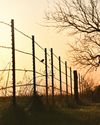
The RISE of Opportunist WEEDS
Be prepared to see increasing changes in weeds we fight, such as poison hemlock and poison ivy, and in the crops we grow.
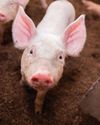
LIVESTOCK Health
Prepare yourself for how to spot symptoms of illness in your farm animals so that you can get them help before it's too late.

CUT FLOWER Farming
If you're considering growing flowers for sale, brush up on these five key things to know before diving in.
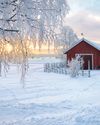
WINTER Survival
Keep your land, animals and yourself in good shape this winter with this helpful advice.
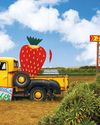
COVERAGE CONCERNS
Avoid common insurance mistakes for rural and hobby farm businesses.

FARMER'S GUIDE Berries
Set the stage for tasty strawberries, blueberries and brambles with these soil-boosting garden tips.
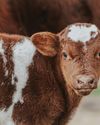
Preconditioning CALVES
Follow our step-by-step guide to get more money for your calves.

Soil Conservation
Often, outside of having a specific problem that needs to be addressed, soil conservation isn't something every farmer readily thinks about. Yet conserving the soil should be at or near the top of every farmer owner or manager's list of concerns because absent the prevention of soil erosion, we have the opportunity for another dust bowl.
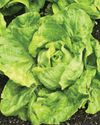
Year-Round Lettuce & Salad Mixes
It's easy to think of salad greens as just a spring- or fall-garden crop, but it's possible to enjoy freshly harvested lettuces, mustards and more from your own garden year-round.
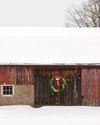
Barn Improvements
Days are never long enough for a farmer. From dawn to well into the night, tasks arise that often require immediate action. Having to search for tools or equipment is an enormous time waster and incredibly frustrating when you can't find what you need, especially when you know you have it.